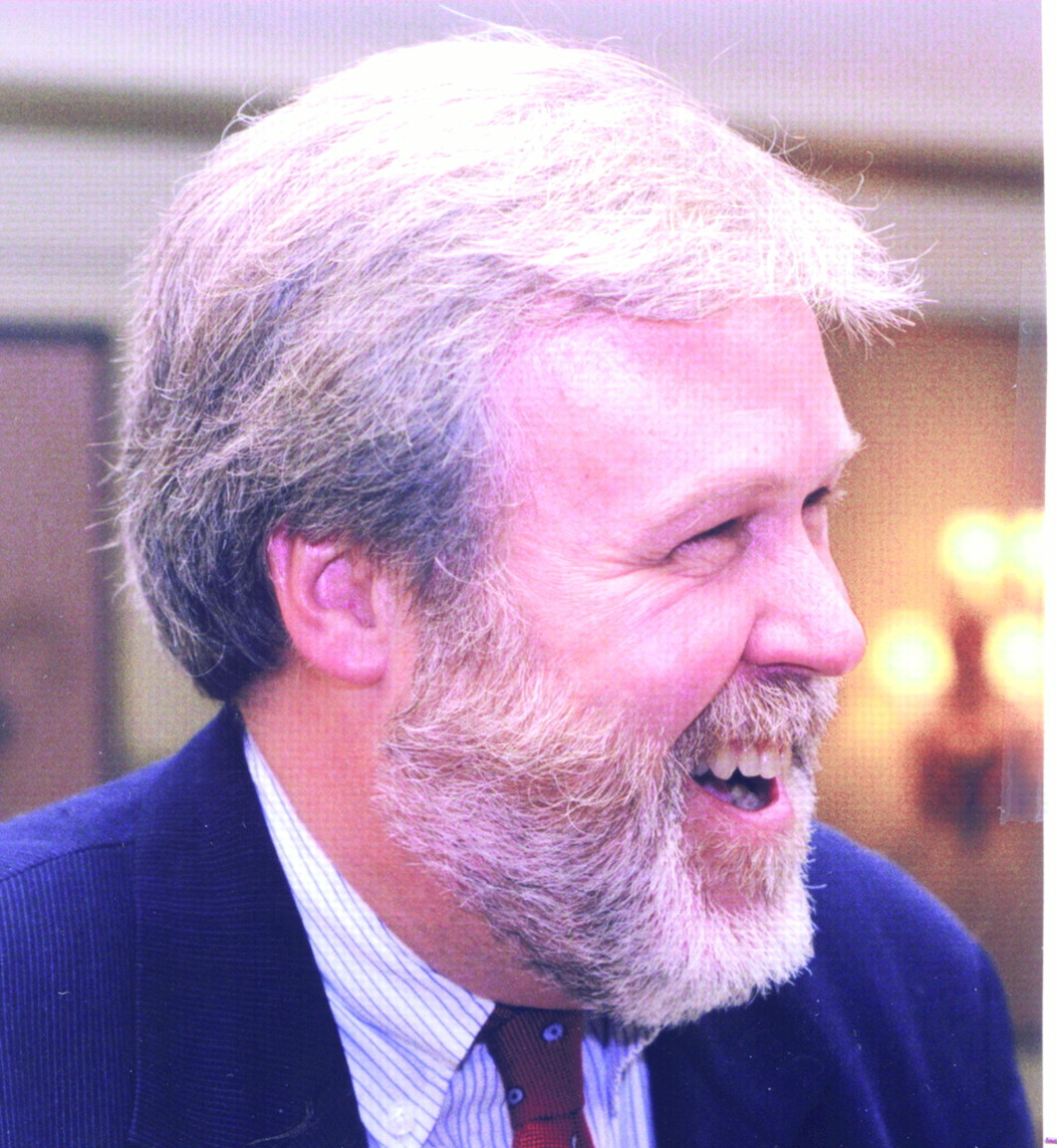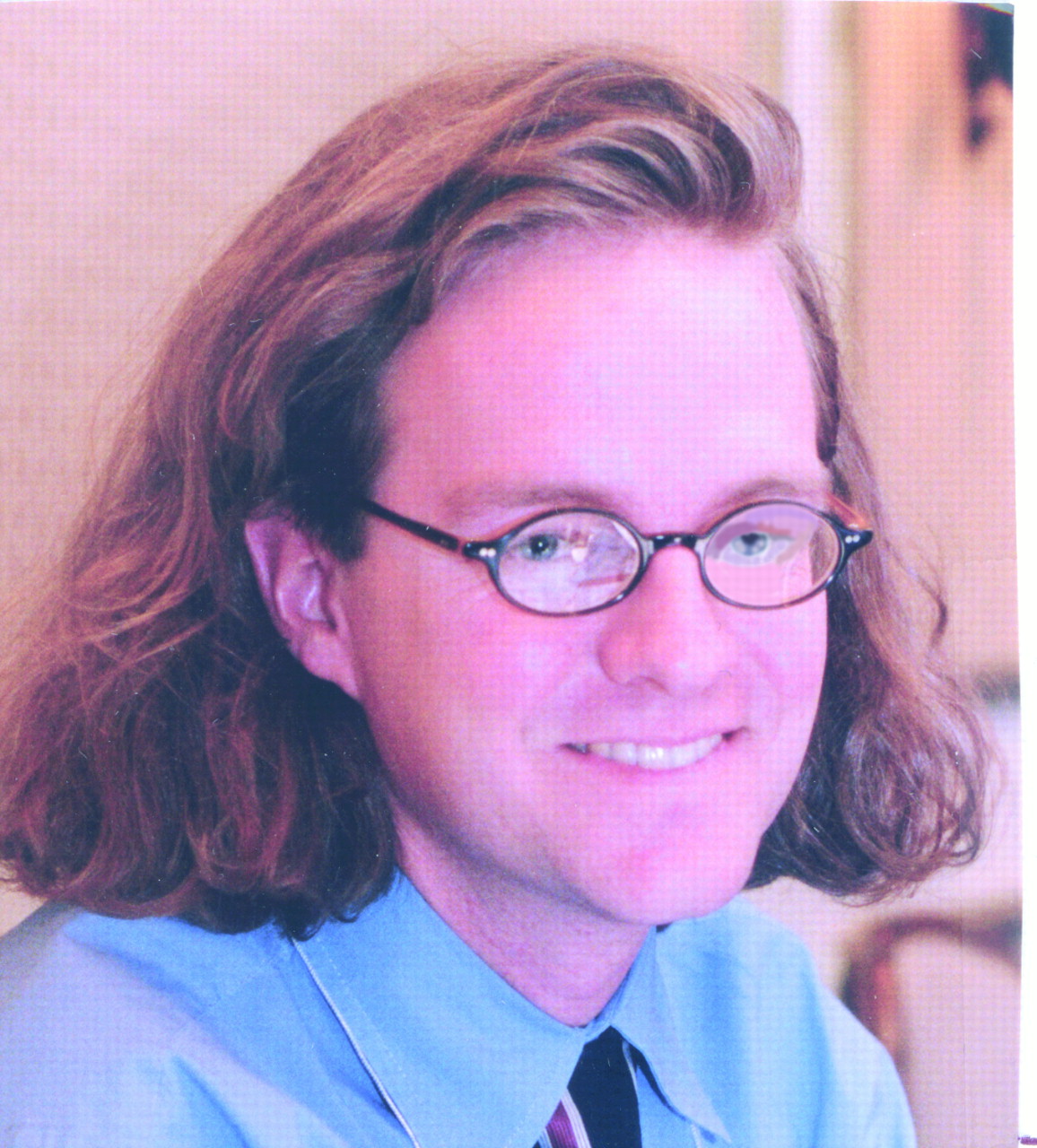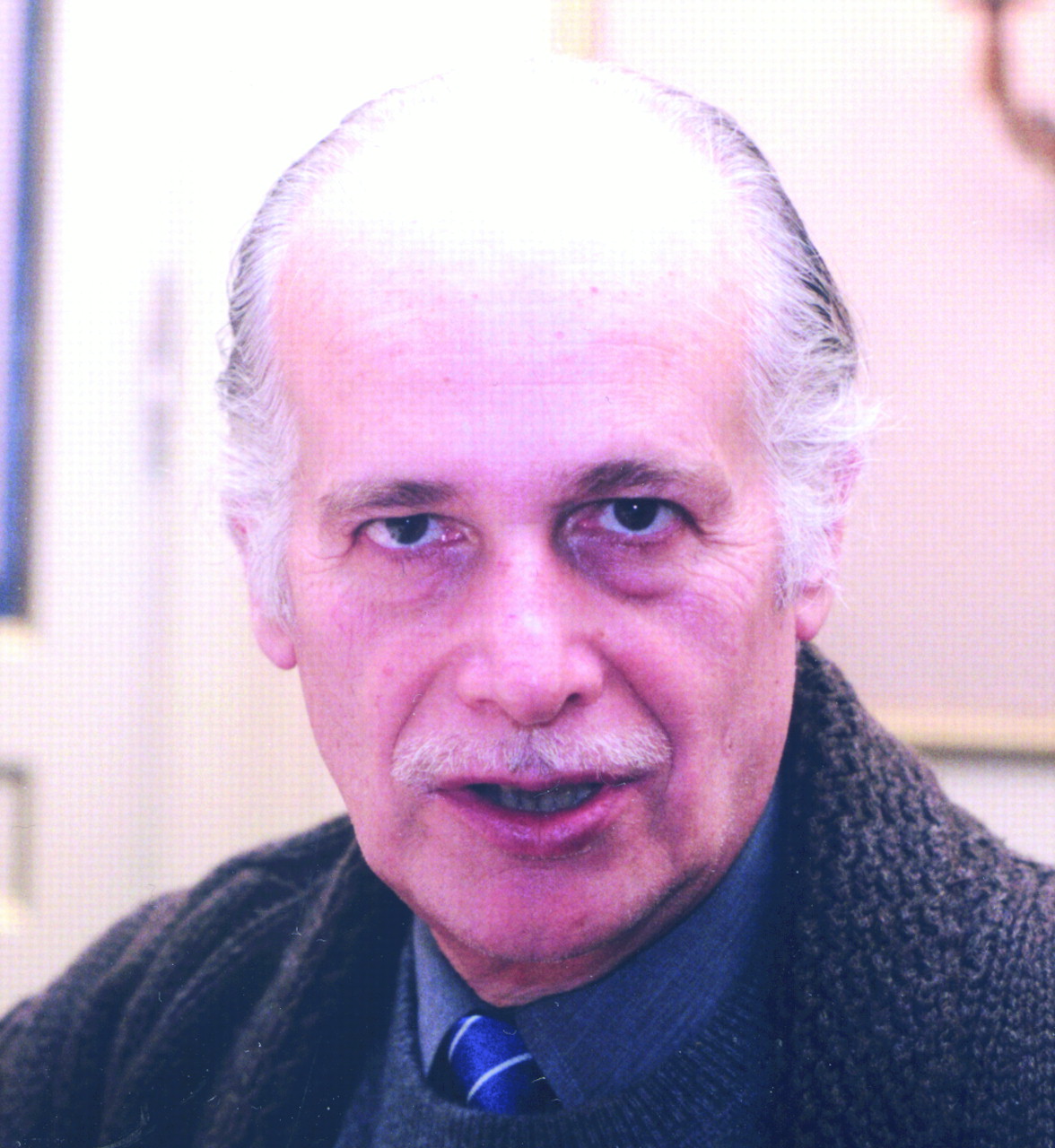Playwrights Explain Why All the World’s Their Stage
It was a crisp December day in New York City. Nancy Hasty, who had written an off-Broadway play that was soon to be produced in London, sat at a long, oblong table in the posh Waldorf Astoria Hotel and related how she had come to write plays.
Some 30 psychoanalysts sat around the table, rapt. They had come there to better understand how the creative mind, especially the mind of a playwright, ticks. In fact, three other playwrights besides Hasty had been invited for this brain-picking session, which was part of the December 2000 meeting of the American Psychoanalytic Association.
Indeed, one of the major revelations to emerge from the session was that playwrights view the world in a singular way. Another major disclosure was that their urge to document their observations in writing starts early in life.

Eric Nuetzel, M.D., believes that analysts and playwrights have many common characteristics.
David Lindsay-Abaire, another playwright invited to participate in the session, reported that for him, too, certain people had made a gargantuan impression on him when he was young. He said that this especially happened after he, the son of a Boston factory worker, got a scholarship to “a tony prep school in the suburbs.” So many of the new people he met seemed larger than life. He felt as if he was an outsider, looking in. And like Hasty, he too wanted to record what he observed. In fact, he had already written some plays as a youth.
Arthur Giron, a third playwright invited to take part in the discussion, also reported that his desire to write plays started early. He was from Guatemala, he said, and one day, at age 12, he went to a play, then said to himself: “This is what I want to do for the rest of my life!”
For all their fascination with the “all the world is a stage” and their desire to document and preserve their impressions of it, however, playwrights seem to prefer writing plays to directing them.
For instance, Hasty said that she does not have the detachment that is necessary for directing her own plays. “The one time I tried it, it was horrible!,” she exclaimed.
The fourth playwright invited to the session, Kenneth Lonergan, has not only written plays, but also directed a film that is now showing in theaters throughout the U.S. It is called “You Can Count on Me” and has received some excellent reviews and even some Oscar buzz. In spite of this success, however, Lonergan said that he prefers play writing to directing, even if the piece in question is his own.
However, beyond viewing the world as a stage, wanting to document and preserve their impressions of it, and preferring play writing to directing, playwrights seem to go about selecting material for their plays in more individual ways.

Chap Attwell, M.D., wants to use theater to teach psychiatric residents.
The American playwright Eugene O’Neill apparently got some of his ideas for plays from his dreams, reported Fred Sander, M.D., a New York City psychiatrist and psychoanalyst who chaired the session.

Playwright Arthur Giron: “I write out of pain and a question.”
But perhaps the most intriguing insight that emerged from the session is that there are a number of striking similarities between plays and psychoanalysis. For instance, Nuetzel, who comes from a theatrical family, pointed out that psychoanalysts, like playwrights, are concerned about both the past and the present; that analysis is a dramatization of a patient’s life history, with the patient serving as both writer and actor and the analyst as director; and that the aim of both analysis and a play is to heal, although the former does it privately and the latter collectively.
Thus, in many respects, Nuetzel argued, “Psychoanalysis is a dramatic art.” He thinks this is no accident. “There are only so many ways that we can fictionalize our experiences,” he said.
In fact, a psychiatrist-playwright who attended the session—Richard Brockman, M.D.—had said something similar when he was interviewed by Psychiatric News in 1999: “I love the stories of people’s lives, the ‘narrative truth.’ I find myself listening as a doctor, and as a playwright, for the narrative and the affect” (Psychiatric News, November 5, 1999).
There may be yet another similarity between writing plays and conducting psychoanalysis: the modest compensation received for the amount of effort involved. For, as Giron pointed out, “What we playwrights do is so anti-American, so labor-intensive, it does not pay well.”
To which Sander chortled: “That sounds like psychoanalysis!” ▪



